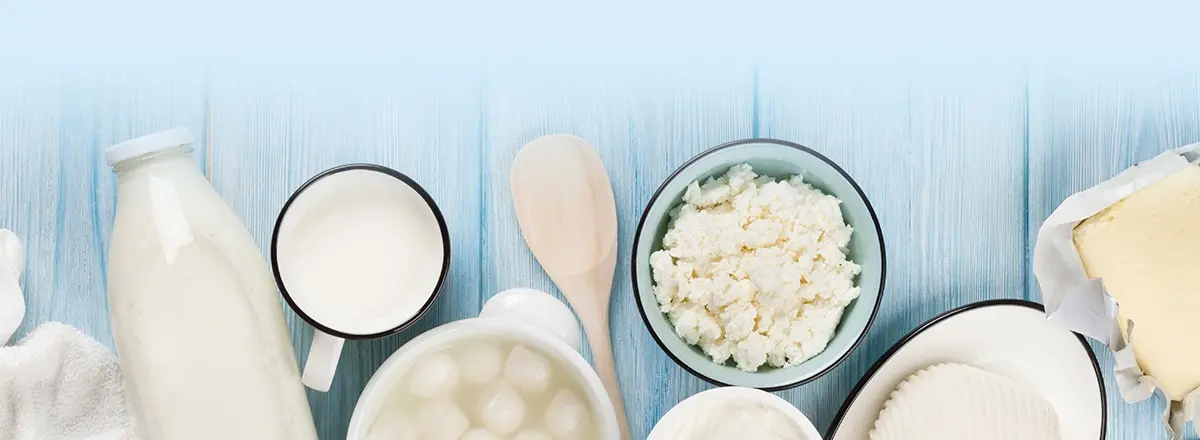
Science + Nutrition + Environment
Dairy products are nutritional powerhouses, and the dairy farmers that produce these delicious products do so in the most environmentally friendly way possible. Sustainable nutrition balances food’s nutritional quality and health benefits against its environmental impact.
For more information on the health benefits of dairy, checkout our Dairy Nutrition FAQs.

Health Benefits of Dairy
Dairy foods like milk are foundational foods in healthy dietary patterns. Filled with essential nutrients like vitamin A, vitamin D, calcium, protein, and more, dairy products help people get the nutrition that their bodies need. Dairy can also:
- Support digestive health. Dairy products like yogurt are linked to better digestion and a healthy immune system.
- Support a strong immune system, helping you feel good no matter what comes your way. Milk and other dairy products are a natural source of immune-boosting nutrients like zinc and protein.
- Support a sense of calm. When life has you stressed, reset yourself with dairy. Its simple nutrition is good for your body and mind.
- Support sustainable energy. Milk helps you fuel up without the caffeine crash. It’s a simple, easy source of protein when you need to stay energized.
- Support the environment. Dairy is good for you and is made with care for the planet. From the farm to your fridge, the US dairy industry is taking steps to reduce food waste and greenhouse gas emissions.

Nourishing People, Animals, and the Land
People understandably want to know where their food comes from and its impact on the environment. Not only do dairy foods nourish people and communities, but they are produced by farmers who are mindful of the planet. Dairy farmers are committed to producing better food through responsible practices. Discover how dairy farmers are committed to a cleaner future for all.

Thirteen Ways Milk Can Help Your Body
According to the USDA FoodData Central, one serving of milk contains many of the vitamins and minerals your body needs, including:
- 25% of daily calcium
- 16% daily protein
- 15% daily vitamin D
- 20% daily phosphorus
- 15% daily vitamin A
- 30% daily riboflavin
- 50% daily vitamin B12
- 20% daily pantothenic acid
- 15% daily niacin
- 10% daily zinc
- 10% daily selenium
- 60% daily iodine
- 10% daily potassium
Resources
Pediatrician Toolkit
This toolkit provides resources for pediatricians and their patients on how dairy fits into a healthy diet.






